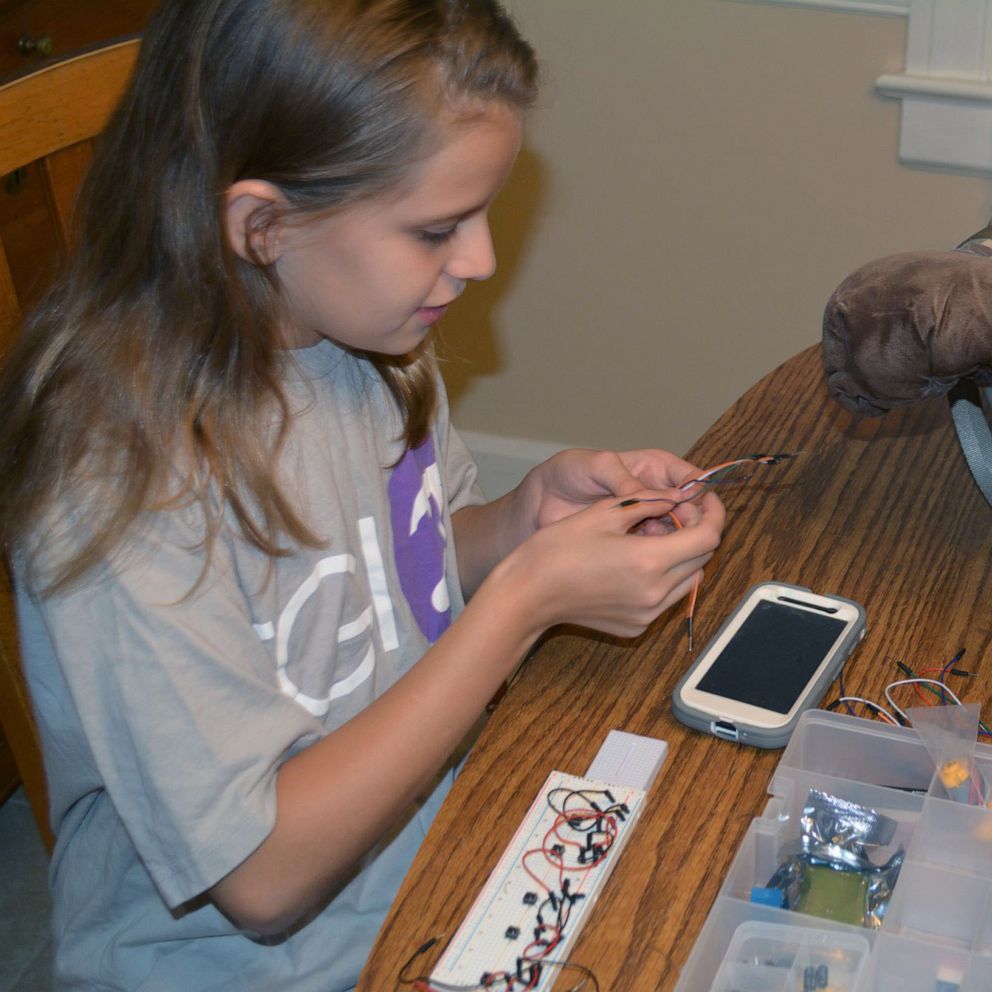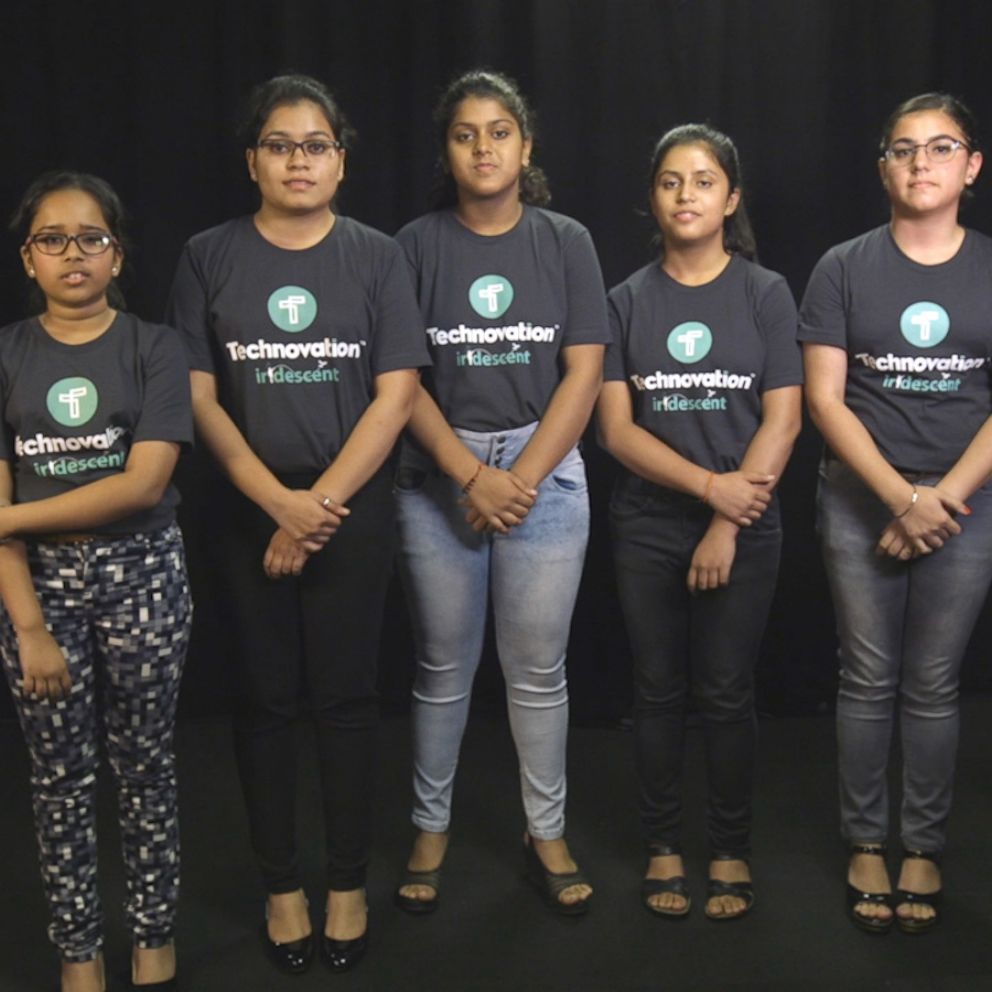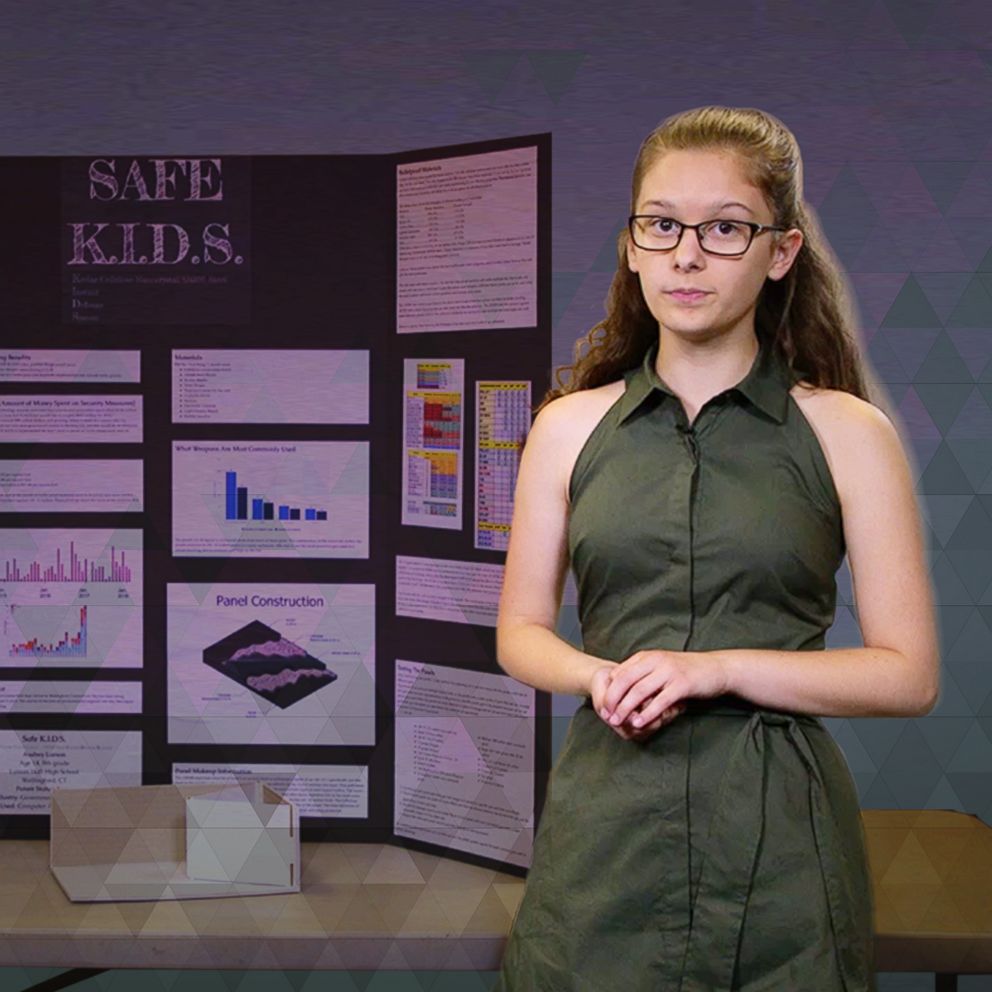Ethiopian-born Virginia teen honored for inventing potential skin cancer-treating soap
Heman Bekele created the soap when he was in middle school.
A 14-year-old student has created a new kind of soap that he hopes could potentially be used to treat skin cancer someday.
Heman Bekele, a high school student in Fairfax, Virginia, says it costs only $8.50 to create a batch of 20 bars of the soap, which he calls Skin Cancer Treating Soap, or SCTS.
"People might not have the equipment or have the facilities to be able to treat this disease," Heman told ABC News about the innovation, which he said could eventually be used in the early stages of skin cancer if proven to be effective. "A bar of soap is just so simple, so affordable, so accessible in comparison to these modern new skin cancer treatments."
According to Heman, who created the soap in 8th grade, when skin cancer cells develop, they weaken dendritic cells in the body that boost human immune responses, allowing the cancer to take over. He said SCTS contains agents that could potentially reactivate dendritic cells that help eliminate the cancer cells.
"It does this as a sort of a compound-based bar of soap," he said. "It's charged with different cancer fighting chemicals. And the main one, there is this drug called imidazoquinolines."

Heman earned the title of America's Top Young Scientist and a $25,000 prize last month after his innovation won first place in the 3M Young Scientist Challenge, an annual competition that gives 5th through 8th grade students "the chance to change their world for the better with a single innovative idea," according to the 3M Young Scientist Lab.
"He is an incredibly bright, passionate and focused young man," Deborah Isabelle, Heman's mentor for the 3M Young Scientist Challenge and a product engineering specialist at 3M, said about him in a statement. "Heman is both compassionate and charismatic, which are great traits for a scientist. With his curiosity and determination, I have no doubts he will change the world for the better."
When asked the likelihood of SCTS actually treating skin cancer, Isabelle replied that it was possible, but it would need to undergo typical clinical trials that could take between five and 10 years. At this point, Heman said he has not performed any physical trials, instead using digital molecular testing, secondary data analysis and formulaic computations to reach his results.
According to Isabelle, there are topical creams that treat skin cancer, but they are more expensive than SCTS, and use different ingredients and formulations. Heman was born in Ethiopia and moved to the U.S. at age 4. He said he remembers the toll poverty took on many of the people in Ethiopia and how they would live, work and toil under the glaring sun. According to the young scientist, those images stuck with him, leaving him to wonder how constant exposure to ultraviolet rays from the sun were affecting the people of his homeland.
"This isn't even an issue that's strictly in Ethiopia. It's an issue that's worldwide," Heman said. "So, then, when they do end up developing issues like skin cancers, it's really just incredibly difficult for them to be able to afford the cures."

For now, Heman said he has a five-year plan: At the end of it, he hopes to have created a nonprofit organization where he can provide equitable and accessible skin cancer treatment to as many people as possible. But to accomplish his goal, he would have to get his treatment through clinical trials, obtain a provisional patent and have it certified by the Food and Drug Administration, he said.
When asked by ABC News what motivates him to reach for such lofty goals, Heman responded, "I think I can condense that answer into one word, and it all revolves around it: It's 'impact' -- making sure the science that you're working on can have a direct impact on the world or make it a better place, in one way or another."







